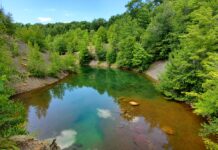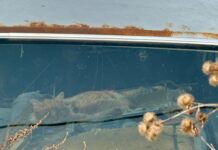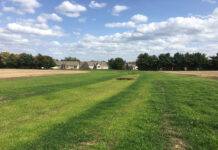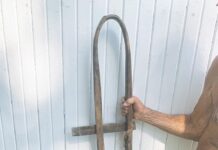“Water, water everywhere…,” or so the saying goes.
Water, along with electricity, is the one thing that most homeowners take for granted. When we turn on the faucet in the morning, we know that we will have water. Safe, clean, clear water.
And nothing can ruin a perfectly good day more than turning on the faucet and having nothing come out of that faucet. Yet this is a reality that many who live in the country and have a private well may face.
Worse yet, we may turn on the faucet and have something come out that is not water, such as iron precipitate from our water softener or industrial detergent from a gas well being scrubbed and swabbed on the neighboring property. Or even methane.
Having a private well or spring for your home use may have many advantages. But with it may come many unique problems and issues.
Your water supply
For many rural residents, their first introduction to a private water well will be in drilling a new well.
Drilling a water well has come a long way in the past 100 years. But just like the hand-dug wells that our ancestors dug years ago, the modern water well is, in some respects, very similar — a hole in the ground out of which one can get water — hopefully.
Not all wells will produce water. The geology under your feet can differ from that of your neighbor. I have seen two wells drilled 300 feet apart, with the first well having 20 gallons/min., and the neighboring homeowner had a dry hole.
And remember: No one can guarantee you that you will have water or how much water you will have. When you hire a well driller to drill you a well, you are paying for a developed hole in the ground — nothing more.
Ask around
First, talk to your neighbors to find out how much water they have and how deep they had to go to get that water. You can also learn if their well ever runs dry, if they have any water quality issues (such as too much iron) or you can learn about any seasonal changes your water could have.
Hire an expert. Second, hire a local, licensed well driller. All well drillers are required to be licensed by the State of Ohio, with each driller being bonded, to cover any contingencies of his work. And a local driller will have a better knowledge of the local geology, rather than a driller from a different area/county.
A local well driller will also know what type of rig he may need to use to produce the largest quantity of water, and the type and size of casing he may need, how much grout will be required, the size of pump for your needs, and whether your geologic formation will require a screen or a shale packer. Although a driller may have a rotary rig that could drill a well in a few days, a cable tool rig may be better for developing a low yielding aquifer.
Lastly, a local driller will have a better knowledge of what mining (if any) has occurred in your area. Countless individuals have built on previously mined ground, only to experience numerous water quality and quantity issues — all related, in some measure, to strip mine soils or previous deep mining in an area.
Get the facts
Third, consult relevant literature. The Ohio Department of Natural Resources (ODNR) has groundwater maps for all the counties in Ohio. Your local Soil and Water Conservation District can assist you in finding your area on this map. The maps can also be found on the ODNR web site.
The Ohio State University (OSU) also has a series of fact sheets where they discuss the water resources for each county of Ohio. They can be found on the OSU Fact Sheet website under the “Ag Engineering Fact Sheet Index” section.
ODNR also has a copy of every existing well log that has been sent to the State of Ohio. Anyone can do a well log search, searching by the name of the owner at the time of drilling. Or you can search by street name/county road number.
Alternative systems
A good driller will also be schooled in alternative water systems, such as springs, cisterns, ponds, etc. Again, each of these alternative systems, to be approved by your local health department, needs to be installed by a licensed, bonded individual, and will, most likely, require some sort of disinfection system.
Your local health department can provide you with a list of such individuals.
If more information is needed, you can contact your local SWCD office, your local OSU Extension office, or your local health department.












